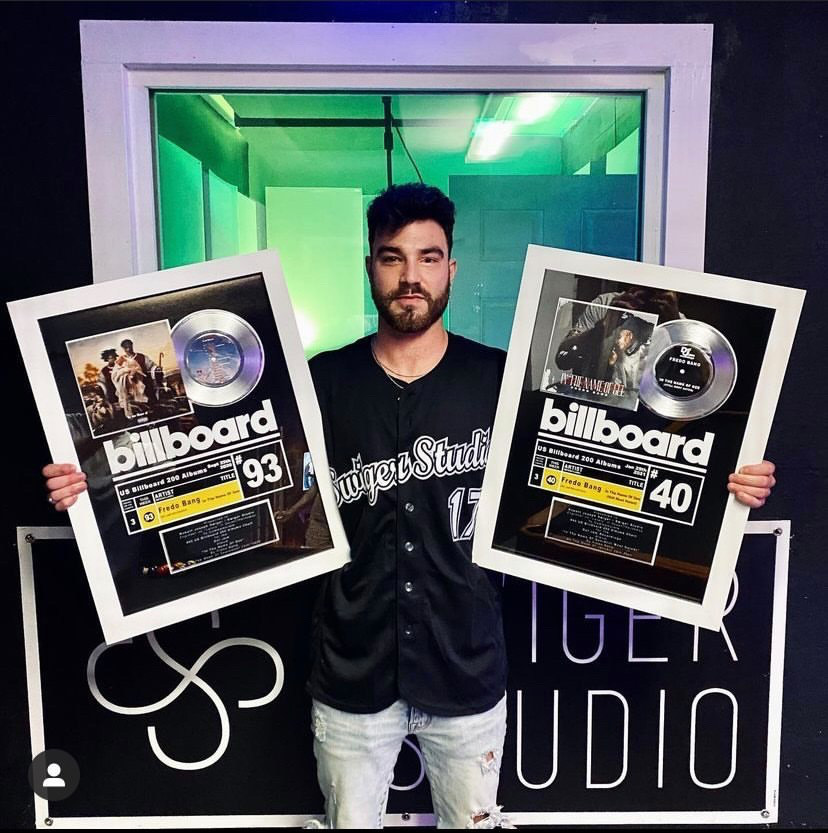A little less than a year ago, Baton Rouge producer, sound engineer and audio technician Joseph Swiger set a goal to acquire two Billboard plaques—the framed placards the national chart curator issues for achievements in the music industry—within the coming year.
At the time, he considered the aspiration a little cocky. But now, the 25-year-old’s lofty ambitions have materialized. On July 7, two certified Billboard Top 100 plaques came in the mail for his contributions to two of the most recent albums from Fredo Bang, a rapper originally from Baton Rouge. They were the first plaques of Swiger’s career.
“It’s funny, you never really know how your blessings are going to come,” Swiger says, “and sometimes you even forget that you asked for them.”
|
|
|
Swiger was awarded the plaques for his work mixing and recording vocals for Fredo Bang’s 2020 album In The Name Of Gee and 2021’s In The Name Of Gee (Still Most Hated), a “deluxe” edition featuring 10 songs that did not appear on the original album. The first album peaked at No. 93 on the Billboard Top 100 chart, the second at No. 40.
The albums mark the seventh and eighth releases for Fredo Bang, or Fredrick Dewon Thomas Givens II, a 25-year-old Capital City native known best for his songs “Oouuh” and “Top,” which features Chicago rapper Lil Durk.

Swiger sees the accolades as a key milestone in his career. While he’s not the type to fish for validation, he says being recognized by Billboard puts a certain stamp of credibility on his business that he hopes will open the door to new, high-profile collaborations. As for his current clients, “it makes them feel like they’re in the right place,” he says.
|
|
|
And though he’s elated to finally put to use the wall space he’d reserved for hanging plaques when he first opened his Convention Street studio in February 2021, Swiger still has his eyes forward. He hopes the next plaques to come his way are for even bigger contributions to a project, like producing an entire album.
Beyond that, Swiger says he’s considered founding a record label in Baton Rouge to help uplift the wealth of artists he’s met since moving to the city from Gulf Shores, Alabama, in 2014, while at the same time combating what he says is a toxic trend of domineering labels restricting artists’ creative freedoms.
“I feel like Baton Rouge has been put on a lot, but I feel like it has a lot further to go,” he says. “I just want to see Baton Rouge on top.”





